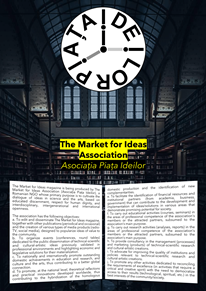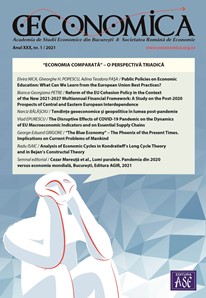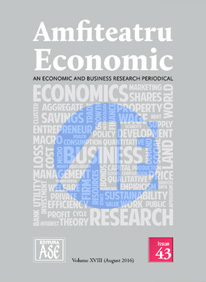
AD 2017 is Anno Donald 1
“You can always count on Americans to do the right thing – after they’ve tried everything else” (Winston Churchill). The burden of unipolarity still hangs over the United States, in that people with vested interests over which they are more or less powerless view America as a “deus ex machina” capable of resolving any issue if only it put its full weight behind it. Decades of seeing American ingenuity in diverting asteroids and defeating aliens have entrenched this view, one which fundamentally overlooks whether the US truly can enact change or enforce stability within the global system and whether it wants to. Unlike a comic book superhero, his powers are limited for good reasons and, even if they were not, the US is unable to solve global problems by itself and sometimes even with others. Such an assumption is bothersome for any President, as it breeds unrealistic expectations, but will be especially tough for the new occupant of the White House.
The advent of Donald J. Trump hardly resembles the prologue to some great national redemption, for it is not clear what kind of greatness he has in mind for his beloved America. As for the international landscape, his “twilightenment” reigns supreme, for it is not clear who are the (real) alien friends and foes of the “archetypal”/“average” (yet so imaginary) US citizen. Trump’s moral code is literally undecipherable, his logic is humoral, his values are untraceable, while his value is a secret formula of his capitalist net worth and democratic trustworthiness. What is common to any of Trump’s portraits is his basic uncommonness: he serves a Union whose domestic polarization he embodies, while his foreign policy seems foreign to any present day routine. But if we want to capture the essence of his discourse (or at least of the perceptions of others regarding it), there are two basic concepts that in no case should be ignored: anti-political correctness and populism.
As an apostle of anti-political correctness, he still needs to keep away from political wrongness. He is a politician, by all (“political”) means. The calculus of consent outstrips the reach of sophisticated mathematics, though being overused in its mild, intuitive form in order to convert public private preferences into public (yet private) choices. Trump and the masterminds of his campaign found the recipe, without being waylaid by its excruciatingly explicit heterogeneity. The wording (so simply and serenely put as no other politician, aiming for the heights of the Establishment, dared before) mixed the remnants of the pioneers’ and pilgrims’ frontier rhetoric (where private property rhymes perfectly with walls and fences) with its contraries, responsible for bringing the American colonies to the brink of independence (the protectionist-mercantilist policies of the exhausted and exhausting British metropolis). In populist speech, coherence is just awkward.
The beginning of 2017 brings the inauguration of Trump’s mandate as the 45th President of the United States of America. The geopolitical and geo-economical year starts with this event, and with this special occasion, the “forensics” and “forecasting” abilities of intelligentsia are requested and put to work. Only one week after that, in the highlands of Switzerland, at Davos, the regular meetings of the World Economic Forum’s high society takes place, addressing the global issues of (distant) present and (near) future. Visionaries and luminaries from politics, business, science and the arts gather in intellectually elitist and financially endowed conclaves to debate and shape the fate of the world. Ecce, Huntington’s Davos Man! This combination of words does not express an anthropological concept, but an exploration. It is not a missing link from some “pre-history” past, but rather points to an artifact of the future that exists in different degrees within every zoon politikon.
This Davos Man is resident of several concentric worlds: firstly, the world of those attending these pensive and plenipotentiary meetings from the WEF; secondly, the world of those who reflect upon the purpose and levers of mankind, but stay at a distance bigger than the USD 25,000 “fee for socializing” in the honorable assembly; lastly, the world that continuously emerges from the interplay of views of those who make the world revolve around their own axis. We are all Davoseans, if only passively, since we do not chat with trend setters, but only with their ideas, or we resignedly obey them. Our lot may simply consist of living in a global society where politically correct characters and iconoclasts switch places by the whims of unevenly educated and culturally biased electors. In the present issue of The Market for Ideas, we devoted space and time for Romanian and foreign thinkers, brought together by the sound need to (con)test the sterile dominion of events over action.









